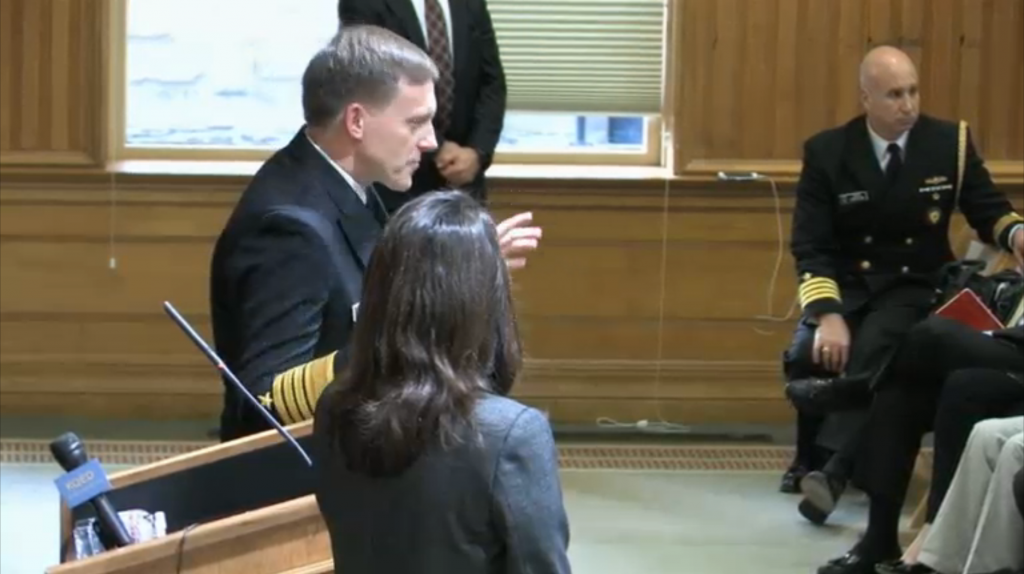
NSA Director Admiral Mike Rogers says that he hates polygraphs but nonetheless considers them “a good tool for us.”
Rogers made the remark during an appearance on Monday, 3 November 2014 at Stanford University in response to a question by professor of political science Scott Sagan, who asked what Rogers has done in terms of background checks, security clearances, and personnel reliability programs to preclude another security breach like Edward Snowden’s.
The first specific measure Rogers mentioned was polygraph screening, replying in relevant part (at 1:09:09 in the webcast):
So, I remind the workforce, we all signed up to a higher level of scrutiny and a higher level of security. We all know that that’s part of the job. We all agree to that. Whether it’s polygraphs, whole lots of other things that we do–I mean, I can’t stand ’em. I’ll be the first to admit I hate ’em, but it is as…but I acknowledge that it’s a good tool for us, and if I’m gonna do this, I go into it with my eyes open even though part of me goes, “Oh man, I’ve got to sit down and get wired to a machine.” ‘Cause we have one standard for all of us. It doesn’t matter if you’re the four-star running the organization, or you’re a junior individual. I’ve got one standard for all of us when it comes to the security framework.
Rogers seemingly ignores the fact that polygraph screening is completely without scientific basis and disregards the National Research Council’s conclusion that “[polygraph testing’s] accuracy in distinguishing actual or potential security violators from innocent test takers is insufficient to justify reliance on its use in employee security screening in federal agencies.”
Rogers also seems to suggest that he’s setting an example for his employees: everyone from the highest to the lowest ranking at NSA has to take the polygraph. But it’s not really the same. When the director of the NSA sits for a polygraph “test,” it’s the polygrapher’s job that’s on the line. No director of the NSA need fear failing a polygraph. The same is not true for those further down the food-chain, for whom a false-positive outcome is a serious risk.
Of course, polygraph screening is not a policy instituted by NSA in response to Edward Snowden’s disclosures. NSA has been (mis-)relying on polygraphy for almost its entire history. It may be the case, however, that NSA has increased the frequency of polygraph screenings. In December 2013, Daniel W. Drezner, writing for Foreign Policy magazine, reported following a visit to NSA headquarters:
Snowden has also changed the way the NSA is doing business. Analysts have gone from being polygraphed once every five years to once every quarter.
Update: While DIRNSA Mike Rogers says he goes into polygraphs “with [his] eyes open,” the NSA has produced a video for employees and contractors that attempts to mislead them about key aspects of polygraph screening. And NSA-affiliated personnel who attempt to open their eyes about polygraphy by researching it online may have their web browsing history intercepted and presented to them during their polygraph sessions.